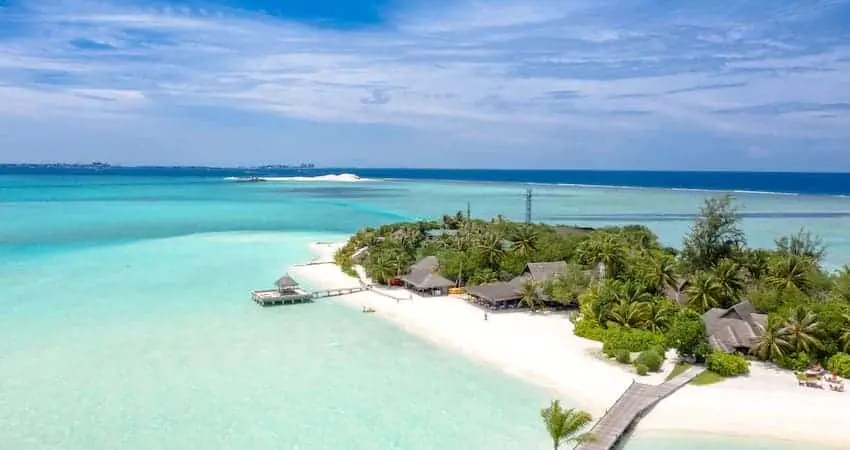Les 10 principaux paradis fiscaux des Caraïbes : Sécurisez intelligemment votre patrimoine
Sun, sand, sea – the Caribbean’s postcard image. But behind those turquoise waves? A financial fortress for savvy wealth builders. From Nassau’s banking corridors to Cayman’s hedge fund havens, these islands aren’t just vacation spots; they’re tax havens where fortunes find sanctuary.
Think it’s all shady? Hardly. With the OECD’s Common Reporting Standard shining lights everywhere, Caribbean havens now compete on legitimacy, not loopholes. This guide cuts through the hype to reveal 10 jurisdictions offering zero-tax efficiency and ironclad privacy, legally. We’ll unpack residency tricks, compliance pitfalls, and yes, exactly where to shield assets from prying eyes. Ready to swap tax headaches for palm-fringed peace of mind?
Qu'est-ce qu'un paradis fiscal ?
Tax havens aren’t just Caribbean hideaways, Switzerland and Singapore play too. But let’s cut to the core: these jurisdictions lure wealth through aggressive tax incentives, banking secrecy, and light-touch regulation. The IMF defines them by three traits:
- Near-zero taxation: Slash income, corporate, and capital gains levies – often to absolute zero.
- Banking secrecy: Privacy shields tighter than a Grand Cayman vault (though cracking lately).
- Minimal substance requirements: Incorporate entities faster than ordering room service.
Here’s the kicker most miss: these places profit from you. They swap tax revenue for steep banking licenses and incorporation fees. Clever, right? That’s how tax havens keep the lights on without dipping into your pocket.. Caribbean tax havens? Same game, sunnier backdrop.
Top 10 tax havens in the caribbean
Forget cookie-cutter lists. These tax havens aren’t tropical clones, each plays a distinct role in wealth strategy. We’ve vetted them through three lenses: tax efficiency, residency accessibility, and regulatory grit.

British Virgin Islands: The offshore powerhouse
Over 400,000 companies call BVI home. Why? Zero corporate tax, ironclad secrecy, and incorporations faster than you can order rum punch. Their Financial Services Commission keeps things tight, no public registries, no fuss. But watch the 2023 economic substance rules: your shelf company needs real local teeth.
Cayman Islands: The billionaire’s playground
Hedge funds love it here. Like, $2.3 trillion of them. No income tax, no capital gains, just crystal waters and tighter privacy than a Swiss vault. Want residency? Prove $1.2M in local assets. Steep? Maybe. But for fund managers, it’s the gold standard.
The Bahamas: America’s backyard haven
Miami’s just 50 miles north. That proximity, plus USD as legal tender, makes it a no-brainer for U.S. investors. Zero taxes on income or inheritance? Check. But don’t sleep on that 12% VAT – it nibbles profits if you’re not careful.
Bermuda: The insurance titan
Not technically Caribbean, but CARICOM ties count. Zero corporate tax fuels its $163B reinsurance market (yeah, it’s massive). But payroll taxes hit 14.5%, brutal if you’ve got local staff. Best for holding companies with offshore employees.
Turks & Caicos: Luxury’s tax-free oasis
Pristine beaches, zero taxes, period. No income tax, no corporate levies. But here’s the rub: it’s on the EU’s watchlist. Banking options? Slim unless you’re buying a $5M villa. Niche, but glorious for passive wealth.
Anguilla: Secrecy’s last stand
Their Offshore Banking Act locks down privacy tighter than Fort Knox. No taxes, obviously. Residency? Easy if you pay $75K yearly. But infrastructure’s barebones, this ain’t Cayman. Ideal for digital nomads with high margins.
St Kitts & Nevis: Passport power
The OG citizenship by investment program (since 1984!). Non personal income tax worldwide. But local companies pay 33%, keep operations offshore. Their asset protection trusts? Legendary for dodging foreign lawsuits.
Antigua & Barbuda: Budget citizenship
Only $100K for a single applicant’s passport. Zero tax on foreign income? Done. But their banking sector’s shaky, stick to international institutions like Butterfield Bank.
Dominica: Fast-track residency
Two weeks. That’s all it takes for residency if you donate $100K. Zero taxes on offshore accounts. Locals pay up to 35%, though, keep earnings foreign.
Barbados: Treaty trader
Corporate tax hits 5.5%, but double-tax treaties with the U.S. and Canada make it a shield for North American ops. Forget hiding, this is about optimizing.
Unlocking residency: Two paths to tax freedom
Want the tax haven golden ticket? You’ve got routes: grind it out or write a check. Citizenship by investment (CBI)’s the jet-set shortcut, Antigua slings passports for $100k donations, St. Lucia lets you own foreign businesses outright. No kidding.
But maybe you’re boots-on-sand material. Physical presence residency demands 183+ days/year and proof you’re not just sunbathing (think local leases, utility bills). Digital nomads love Anguilla’s fast-track hack, just show $18k monthly income.
Here’s the rub: CBI gets you instant tax residency in places like Dominica, but Uncle Sam still wants form 8938 filings. Always. Choose wisely, paperwork nightmares eat savings faster than a hurricane.
Navigating compliance landmines
Tax havens aren’t lawless playgrounds anymore. Get this wrong, and penalties start at $10k per month. The FATCA crackdown means Uncle Sam knows about your Cayman account before you do. Seriously.
Three regulatory tripwires to dodge:
- Economic substance rules (BVI/Cayman): Your “virtual office” won’t cut it, hire local staff or face dissolution.
- CRS data swaps: 112 countries auto-share bank details annually. No exceptions.
- EU blacklists: Turks & Caicos nearly got axed in 2023. Check the latest list quarterly.
Heard horror stories of “tax-efficient” structures triggering Audits de l'IRS? Exactly. Always cross-reference the IRS FBAR thresholds. That $10k balance? It’s an audit bullseye.
FAQs: Caribbean tax havens demystified
Q: Can Americans legally use these tax havens?
Absolutely, if they file FBAR et form 8938. Forget whispers about illegality; it’s about disclosure. One client nearly got nailed skipping IRS Form 3520 for his Nevis trust. Don’t be that guy.
Q: Which haven locks down assets best?
Hands-down, Nevis trusts. They force creditors to post $100k bonds just to sue. And judges? Locals who hate foreign meddling. Try that in Delaware.
Q: Do havens spill secrets to other governments?
Most do via CRS exchanges. But here’s the kicker: BVI still won’t share with China or Russia. Strategic? You bet.
Q: What’s the cheapest residency buy-in?
Antigua’s $100k donation, but Dominica’s faster. Heard of a crypto trader who got residency pre-coffee brew? True story.
Q: How do these islands fund themselves without taxes?
Banking licenses et passport sales. Anguilla charges $75k/year just to bank there. Tourism? Pocket change compared to that.
Lock in legitimate tax freedom - Before It shrinks
Let’s cut through the palm trees: tax havens like BVI and Cayman still work, but the window’s narrowing. FATCA’s claws dig deeper yearly; CRS shares data faster than gossip in a Nassau yacht club. Brutal? Yes. But strategic wealth protection isn’t dead, it’s just evolved.
One client shielded $8M using Barbados’ treaty network after his general accountant botched filings. That’s the cost of amateur hour in offshore planning.
Critical note:
Caribbean tax havens demand specialized expertise – something most firms don’t offer. H&S Accounting & Tax Services focuses on U.S. compliance, not offshore structuring. For havens, seek niche advisors like Global Citizen Solutions. Got complex assets? Get a dedicated offshore tax attorney – before the IRS comes knocking.







